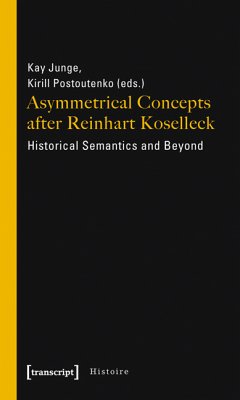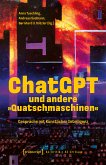This volume intends to remedy this situation by bringing together a small number of scholars at the crossroads of history, sociology, literary criticism, linguistics, political science and international studies in order to elaborate on Koselleck's notion of asymmetric counter-concepts and adapt it to current research needs.
Dieser Download kann aus rechtlichen Gründen nur mit Rechnungsadresse in A, B, BG, CY, CZ, D, DK, EW, E, FIN, F, GR, HR, H, IRL, I, LT, L, LR, M, NL, PL, P, R, S, SLO, SK ausgeliefert werden.









